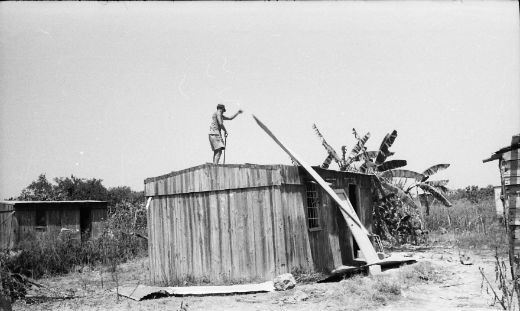Ma’abara (Hebrew: מעברה), plural- Ma’abarot, was the name given to a transit settlement in the 1950s for new immigrants to Israel, constructed due to lack of resources in the early days of the state. Levi Eshkol, the third PM of Israel came up with this idea.
Over 80% of the residents were Jewish refugees from Arab and Muslim countries in the Middle East and North Africa.

The Hebrew word Ma’abara derives from the word Ma’avar, which means transit.
Most of ma’abarot residents were housed in temporary tin dwellings. Conditions in the Ma’abarot were very harsh, with many people sharing sanitation facilities.
Unlike the situation in immigrant camps, where the Jewish Agency provided for the immigrants, the residents of the transition camps were required to provide for themselves.
Over time, the Ma’abarot metamorphosed into Israeli towns or were absorbed as neighborhoods of the towns they were attached to, and residents were provided with permanent housing.
The number of people housed in the Ma’abarot has begun to decline since 1952. The last Ma’abara was closed in 1962.
Ephraim Kishon produced a satirical film about the Ma’abarot called Sallah Shabbati. The film, with Chaim Topol, was nominated for an academy award and became one of the most successful Israeli movies.
Photo:
Michal Almagor







 Available on WhatsApp
Available on WhatsApp
Join the conversation (No comments yet)